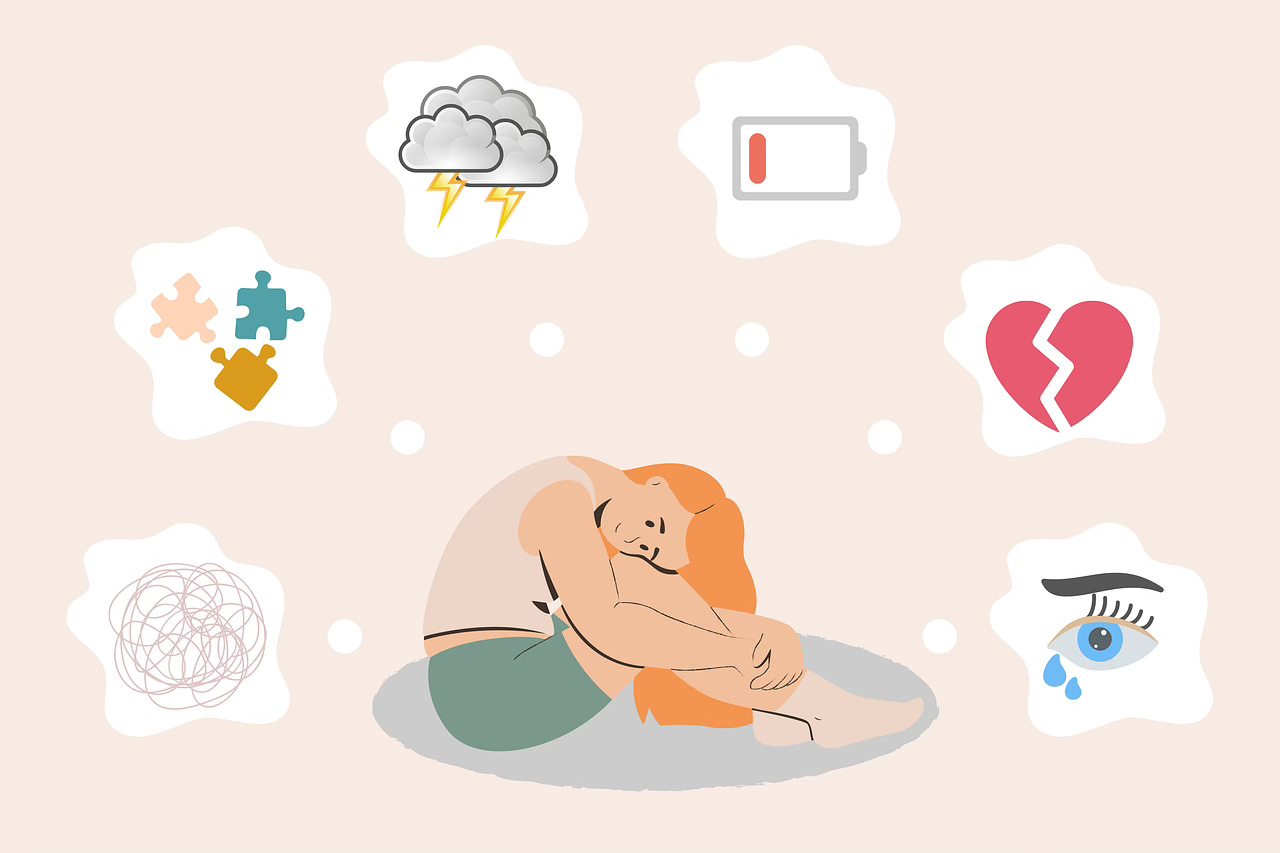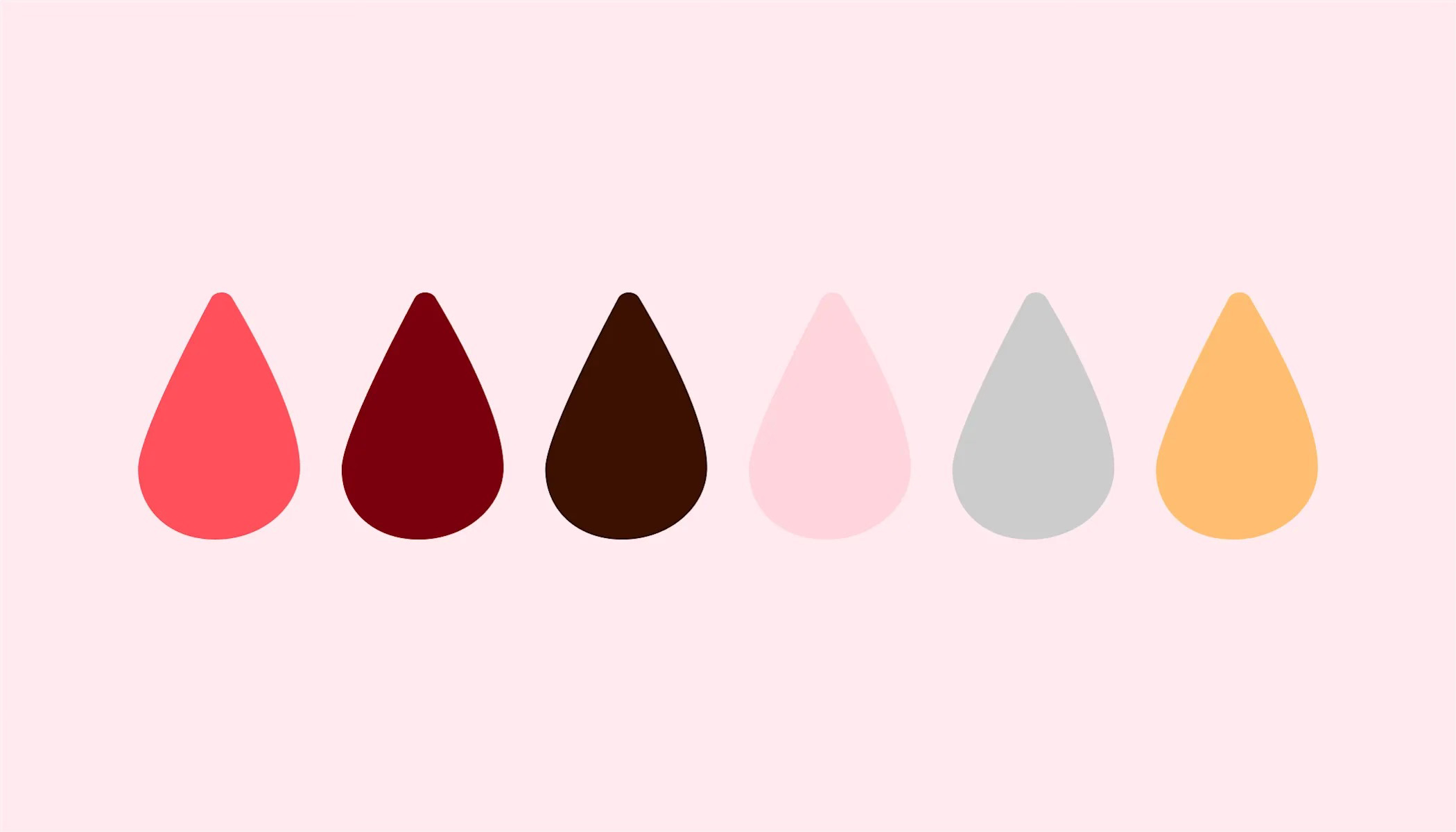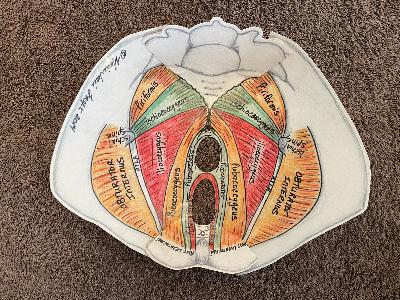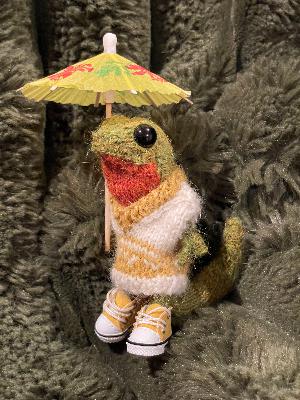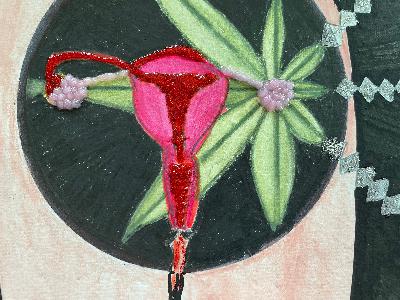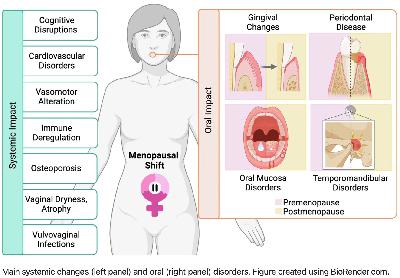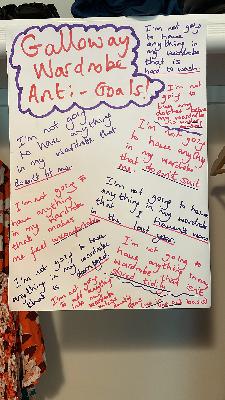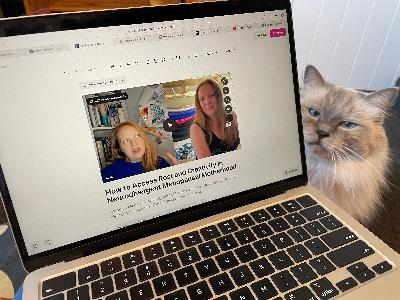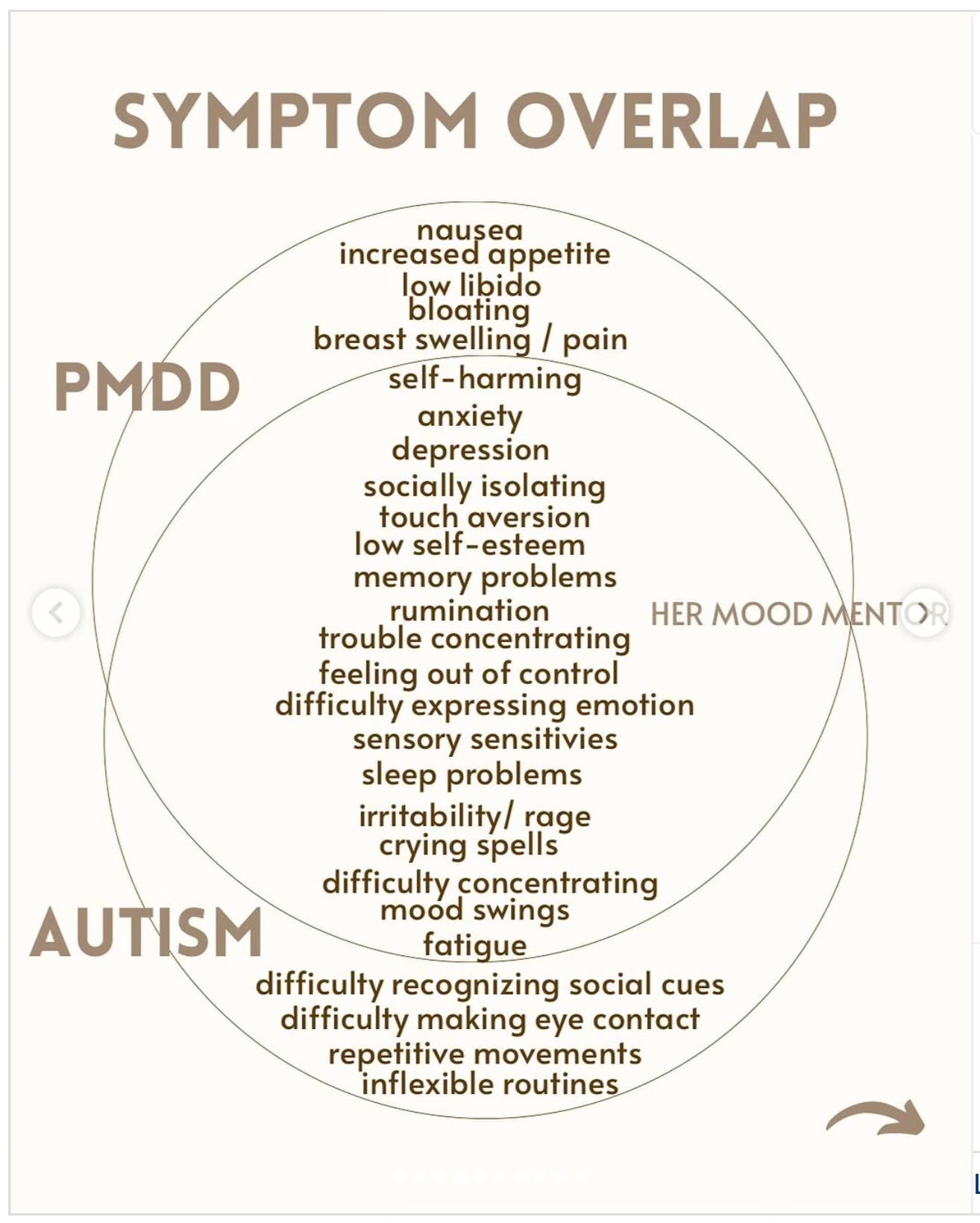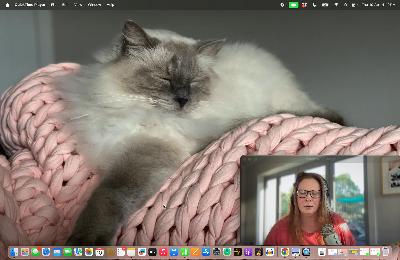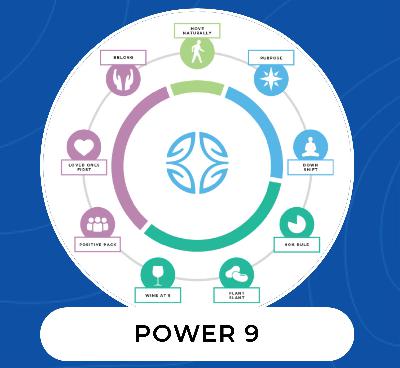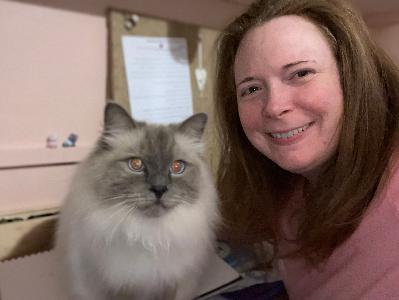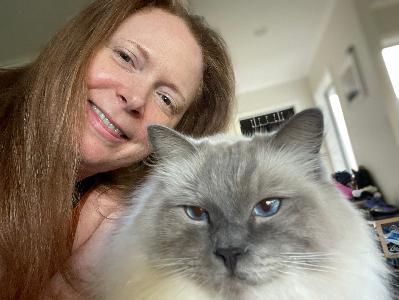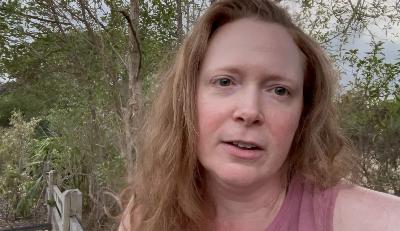Empowered Menopause: Upholding Bodily Autonomy in the Face of External Pressures
Description
This direct message from a new friend on Substack this week has provoked self-reflection on my part, as well as being a reminder of how disempowered and uncertain we can feel during the neurodivergent menopause transition:
“I have people around me on polar opposites of the spectrum of pro/anti HRT, and I’m unsure how best to decide what's right for me.”
Why are we so opposed and opinionated?
I am guilty of pushing my own agenda on others, and I went too far via text message when recently advising another friend to drop the “withdrawal method” as contraception in a casual relationship. Like me, she is perimenopausal, and I was insistent that this contraceptive method cannot be reliably effective in our life stage, when our periods are unpredictable and our ovaries are forcefully making last ditch attempts at ovulation and conception.
I was freaking out on her behalf, as the thought of me getting pregnant now is terrifying. I was so impassioned and preachy telling her my opinion, but it was an unwarranted projection of my own fears. I thought I was sparing her the risk of an unwanted pregnancy, and the avoidable trauma that can go along with that.
My ADHD meds had worn off for the day and my interference filter was in the bin until the next day’s dose. I was letting my special interests of hormones, fertility and women’s bodily autonomy overcome my low capacity for listening to her views. Reading that back, I see how contradictory that is and how ridiculous I was being.
I have since apologised to her profusely.
Info dumping my special interests on others can feel so rewarding, and the dopamine that comes with it can overwhelm me.
Missing my friend’s cues and discomfort - easily done over text message - only made it worse for both of us. Women and AFABs are socialised to be talked at and hold our tongue.
Autistic women (me) once up on their soapbox are hard to quieten.
Our friends may not tell us to STFU at the time, but they may b***h about us behind our back, which is worse.
Do you have a friend like me who tells you their opinion without stopping to listen to yours?
If so, I would like to apologise on both our behalf’s, and reframe our misguided interference as an offering of love and illumination. We are trying to show you that we understand your issue, and that we have the fix you need. That we have researched both sides and formed our conclusion, so that you don’t need to waste your time and energy on it.
We’ve got your back!
We are not looking for a fight, but we will often defend our opinion to the end, because it was hard won.
I’ve said it before and I will say it again: info dumping is my love language.
It is not an ideal love language… Most people would prefer to receive flowers over a barrage of texts telling them what to do for the best with their uterus.
I know it is something I need to learn to control in myself, because it is pissing everyone else off. And I will come back to it when my cognition improves after this current regression. Or not.
Anyway, back to the original point:
“I have people around me on the polar opposites of the spectrum of pro/anti HRT, and I’m unsure how best to decide what's right for me.”
💕
Bodily autonomy
Women and AFABs deserve impartiality when deciding on the best way to approach managing symptoms of perimenopause. The world is polarised in every way possible, more so now than ever.
Can we say anything without receiving a barrage of comments, trolls and naysayers telling us we cannot do right for doing wrong?
I want to take this opportunity to say that there are many different ways of living through the inevitable, natural and unavoidable menopause transition.
Yes, I am heavily medicalised, monitored and hoping to end it all as soon as possible with a total hysterectomy for the sake of my mental health. But also yes, I did once consume my newborn baby’s placenta in a smoothie after a home hypnobirth in a birthing pool in my kitchen because I then identified as a “Crunchy Mama”.
But we can change our minds at any point!
In fact, immediately after mooing my baby out without pain relief, I insisted on using gas and air whilst having my perineum stitched back together because I had already been through enough. 🪡
Boundaries are essential when making important decisions around our own health and wellbeing. Those boundaries include telling people that you have considered all options, and have decided what feels worthwhile trialling right here, right now.
Many options in women’s health treatment are reversible and temporary anyway - perhaps apart from unmedicated births after the event, and surgical menopause.
Feeling empowered to make your own choices, and having them supported by trained professionals overseeing your treatment plan, is vital.
Your friends offering their support rather than judgement is a nice to have. It doesn’t need to determine what you do next.
We don’t have to take sides
All good teachers, child psychiatrists and similarly esteemed professionals will should tell us that we are the experts on our children, and that they will support us, backing us up with their expertise.
We are pretty good at trusting our instincts when it comes to our children’s emotional safety and best interests. Rarely do we do the same for ourselves.
Please know that you are the expert on yourself, and that the trained professionals you trust and work with on your perimenopause transition need to be experts in their field, and working alongside you as a partner.
Optimising your quality of life and mental health at all times is what counts.
We both know that your friends love you and want what’s best for you, but they might be misguided and biased on what you actually need right now.
There are options for treatment that are medicalised and non-medicalised.
The term “holistic” gets a bad rap these days. In its truest sense, holistic means our body, mind, spirit - and anything else I haven’t thought of - are interconnected. That we are one being. But “holistic medicine” is considered by some to be pretty woo-woo by comparison.
What comes to my mind regarding “holistic medicine" is herbs, tinctures, compounds, sage bundles and other stuff I clearly haven’t researched for this article (sorry).
Yet I consider my own menopause treatment plan to be fairly holistic - in the more holistic sense of the word - incorporating hormonal replacement therapy AKA HRT (micronised progesterone capsules, oestrogen gel and patches, vaginal estrogen cream, testosterone gel), hormone blockers, SSRI, strength training, plant based eating, protein powders, creatine, weighted blankets, artificial tears, yoga nidras, Ragdoll cats x2, podcasts, writing, and cathartically yelling at people who push me too far. 🧘♂️
Yesterday I even tried to learn how to knit. Because I am desperate, and it seemed therapeutic, yet cheaper than most therapies.… 🧶
Why Hormone Replacement Therapy (HRT) has bad PR
Have you heard of the Women’s Health Initiative (WHI) study that wrongfully associated HRT with over-inflated risks of significant health issues? Because if you haven’t, I wouldn’t advise you read up on it. It’s since been disproven due to problems around research methodology, participants’ ages, and the outdated types of HRT that were offered at the time.
Yet the repercussions of the WHI study still affects us all today. When we ask our doctors about being prescribed HRT, their computer will flash up a warning.
‘HRT prescribing guidelines have not been updated with the current evidence about HRT which means that when GPs prescribe they are warned by their computers that certain HRT products should not be prescribed.’
Balance website, Dr Louise Newson: Understanding your GP – Four reasons why some women might not be able to obtain certain types of HRT
General practitioners are not trained in menopause during medical school to the extent that serves us, and nor are they required to undertake any further training on the topic once practicing. (Please correct me if I am wrong.)
Medical misogyny fails women and AFABs every day, with the notion that menopausal people are subjects of hysteria continuing to prevail.
You don’t have to suffer
The good news is that societal messaging on menopause is turning a corner. No longer a taboo, we are beginning to openly talk about it. Although I can only speak from own viewpoint in Aotearoa NZ as a middle class, native English speaking, white cis woman.
We have a lot to learn from each other, but we all need to remain open minded.
For the neurodivergents amongst us, and for anyone who has experienced previous bouts of hormonal depression and emotional/mood dysregulation (during puberty, pregnancy, using hormonal contraceptives, during IVF treatment, postpartum, PMDD and so on), we are especially vulnerable to recurrent depression due to the extreme fluctuations in perimenopause.
These are potentially volatile times in our emotional lives.
Menopause does not exist in a social vacuum. It affects entire families, workplaces, communities and societies.
You are not being selfish by asking for mor


